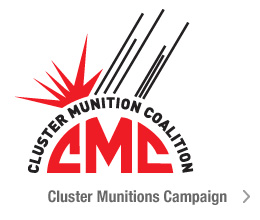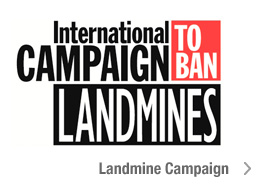What we do
Landmine and Cluster Munition Monitor is a program providing research and monitoring for the International Campaign to Ban Landmines (ICBL) and the Cluster Munition Coalition (CMC).
Before the Monitor’s inception, there was no systematic monitoring and assessment of the international community’s response to the problem caused by landmines, cluster munitions, and other explosive remnants of war (ERW).
Preparation of Monitor research products entails extensive collection, analysis, and distribution of publicly available information. Although in some cases it does entail investigative missions, the Monitor is not designed to send researchers into harm's way and does not include hot war-zone reporting.
The Monitor’s key target audiences are governments, civil society, and international organizations, as well as media, academics, and the general public.
The Monitor produces the following research products:
- Landmine Monitor Annual Report
- Cluster Munition Monitor Annual Report
- Online Country Profiles summarizing developments in each country/area
- Fact sheets
- Briefing Papers
- Online versions of all publications.
The Monitor meets the information needs of the international community by:
- reporting on all aspects of the landmine, cluster munitions, and other ERW issues including ban policy, use, production, trade, stockpiling, demining, casualties, victim assistance, and mine action funding;
- analyzing trends and developments in the above-mentioned thematic areas;
- providing country-by-country updates on every country in the world related to the above-mentioned themes;
- making research findings available in a variety of print and electronic mediums, and translating key research findings into non-English languages;
- maintaining a global network of experts who are available to provide information as needed to the international community; and
- remaining flexible and annually adapting reporting to changing information needs.
This information is needed to:
- support the universalization and implementation of the treaties banning landmines and cluster munitions;
- guide government policy planning and decision-making;
determine mine action funding priorities; - prioritize where stockpile destruction, clearance, risk education, and victim assistance programs are needed in affected countries;
- serve as an advocacy tool for civil society to use to hold their governments accountable for their actions under the treaties banning landmines and cluster munitions; and
- raise awareness of the global landmine, cluster munitions, and ERW problems and keep these issues prominent in the public domain to assist in generating the momentum and support needed to sustain mine action efforts.



